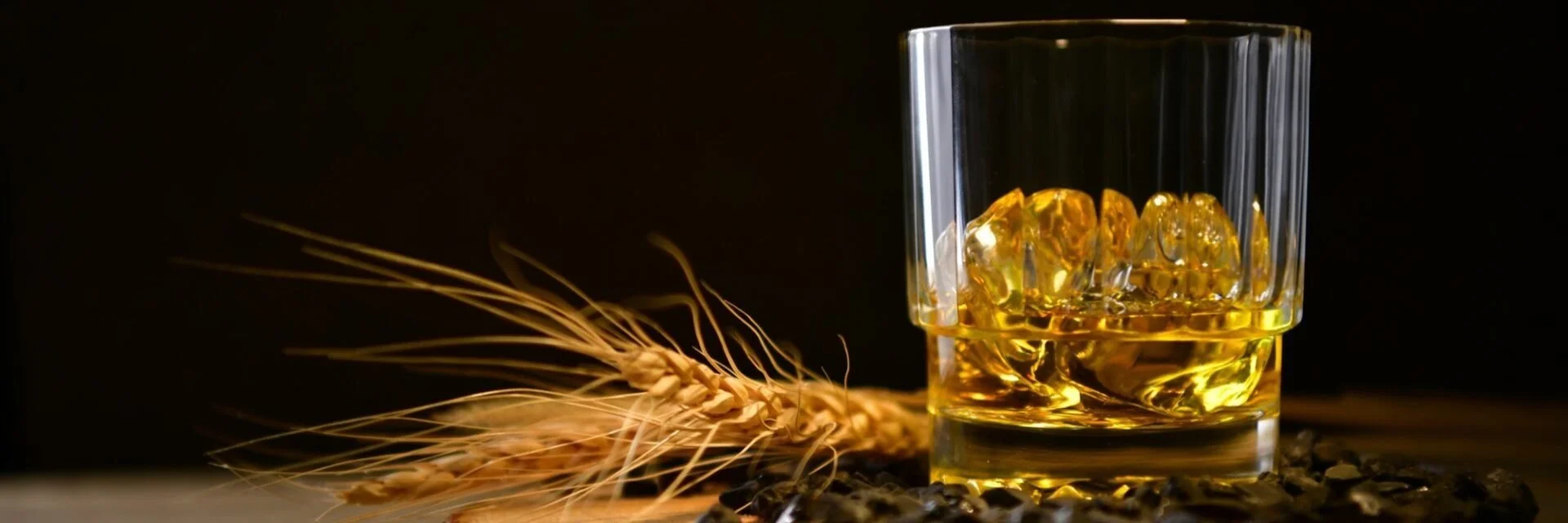Heirloom Grains and the Texas Grain-to-Glass Whiskey Movement
Discover > Truly Texan > Heirloom Grains and the Texas Grain-to-Glass Whiskey Movement
Texas whiskey has always had a special place in my heart. I’ve long been fascinated about the history of distilleries (both legal and not!) in the Lone Star State and the ingenious methods used to convert grain to glass during the Prohibition Era. These historical leaps and bounds have over time translated into some seriously big-flavored Texas whiskeys.
Recently, numerous Texas distillers have started incorporating heirloom grains into their “mash”. Doing so brings out new and interesting flavors that harken back to the whiskies made in the golden age of saloons. So, what’s all the hubbub about these heirloom grains? To be honest, I also wasn’t too sure before I started doing my research. However, I soon realized that in order to learn about heirloom grains, we need to look into the past to see where we parted ways in using them for our Texas whiskies.
What are Heirloom Grains and Why are They Popular Only Now?
Heirloom grains are varieties of cultivated grain crops that are endemic in origin. And most importantly for us, they make damn good whiskies as they have uniquely delicious flavor profiles. The heirloom corn grain varieties Bloody Butcher, Tennessee Red Cob, and Massey are known to have particularly intriguing tastes. The question is, if they’re really that good, then why aren’t more farmers growing these grains and more stills distilling these whiskies?
Well, when it comes to farming, it’s all about yield. In the past, farmers have tended to shy away from growing heirloom grains because of how low their yields are. Yellow dent, the most common variety used by distillers, is particularly enticing for farmers because of its high yield. And in the distillation process, it ferments much better than other less common varieties. However, as more and more people start to get involved in whiskey production, the growth of the heirloom grain-to-glass market is imminent.
Admittedly, there are only a limited number of farmers who cultivate the heirloom grains needed for whiskey making. This means many distilleries grow the varieties themselves on their own farms or arrange for farmers to grow these grains in exchange for buying all of their harvest. The demand for heirloom grain-to-glass is slowly rising, meaning there’s an expanding opportunity for farmers to grow specific corn varieties to cater to this niche whiskey market.
The growing popularity of heirloom grains is also said to have a positive impact on the environment, as it helps to shrink the cultivation of dent corn grains, with environmentally-centered cultivation practices being encouraged. In promoting the cultivation of these heirloom grain varieties, the Texas food system is also sure to benefit from an increasingly diverse corn supply.
What is Grain-To-Glass?
It’s all well and good talking about grain-to-glass, but what does it actually mean? To put it simply, grain-to-glass is a term used among distillers and brewers to indicate their involvement in the entire process beginning from grain cultivation, fermentation and distillation, with the grains being used as main ingredients in their spirits.
What Is the Difference between Grain-To-Glass Beer and Whiskey?
Brewery and distillery are terms often used interchangeably. Yet these are very different industries with different methods. Beers, made in breweries, and whiskey, made in distilleries, are both made from grains. The difference is that whiskey is distilled and beer isn't. Beer is made by fermenting malted barley (how long does barley last?), hops, and yeast, then adding water. Whiskey begins with a fermented mash of malted barley, corn, wheat, and rye.
Both grains are generally malted to make into a signature brew or distillate, which means that they're soaked in water to start germination before being dried in a kiln. This process is called "kilning." This is what gives the grains their color and flavor.
In both cases, after kilning, the grains are then milled into smaller pieces before being mixed with water (for brewing) or grain spirits (for distilling). The mixture is then fermented naturally or with added sugars or yeast. After fermentation is complete, it becomes beer or whiskey.
Another big difference is that while most whiskeys are aged in barrels for at least two years, many beers are consumed within weeks or months of being brewed.
And while whiskeys tend to contain more than just one type of grain (often up to ten), beers are typically made with just one type of grain.
The Texas Grain-To-Glass Scene
Business is booming in Texas when it comes to craft distilleries, and grain-to-glass is an expression that is particularly appropriate for Texas distillers and their whiskies. This is because Lone Star State has so much potential when it comes to cultivating fabulous wheat and grain varieties for alcohol.
Distilleries in Texas, such as Still Austin, are collaborating with local farmers to help keep a keen eye on the grains used in their spirits. The grains go through fermentation and are then distilled in-house and aged to perfection in their respective stills. This attention to detail when making spirits like whiskey guarantees that the ingredients used are up to spec, so consumers can enjoy high-quality crafted spirits made by passionate distillers.
Big Texas and Its Big Whiskey Flavors
All this means that you can expect to find some brilliant grain-to-glass whiskies in Texas packed with big flavor. The heirloom grain-to-glass train is slowly being hopped on by distillers all around Texas, with their spirits gaining popularity among both newbies and seasoned alcohol drinkers. Here are some of the best grain-to-glass whiskey joints for you to add to your next booze-filled tour of Texas with your friends.
Still Austin Whiskey Co.
Still Austin Whiskey Co. was established with the aim of crafting authentic Texas-made whiskeys. And since then, they have pushed the envelope by distilling a variety of heirloom grains that are native to Texas. This whiskey company focuses on producing corn varieties that do not normally thrive and have, otherwise, not been grown in Texas for over a hundred years. Drawing inspiration from stills in pre-Prohibition Texas, Still Austin Whiskey Co. is bringing back to life the original flavors of good old Texan whiskey. One of Still Austin’s best sellers, their Straight Bourbon Whiskey is made from chef-grade white corn, giving a surprising yet deliciously subtle tortilla flavor that is complemented by the spice of their high-rye mash bill.
A renowned Texas distillery, Still Austin is leading the grain-to-glass movement by cultivating heirloom grains from local farmers.
Address: 440 St Elmo Rd E, Austin, TX 78745
Contact: (512) 276-2700
Pair your whiskey with the best BBQ in Austin.
Balcones Distilling
Balcones Distilling was established in 2008, and in 2009, their Balcones Distilling’s Baby Blue Whiskey made its mark in the Lone Star State. Crafted from award-winning roasted blue corn, this original Texas whiskey boasts a refined complexity through its nutty and roasted overtones. The distillery’s dedication to their craft also earned them recognition in the 2012 London’s Best in Glass competition, where their single malt beat even the finest of their Scottish competitors. Nowadays, they produce an impressive collection of classics that are rooted in providing their tasters with a true Texan whiskey experience.
Do not miss Balcones Distilling, which offers Texas flavors that shine through their spirits.
Address: 225 S 11th, Waco, TX 76701
Contact: (254) 755-6003
Treaty Oak
Treaty Oak was established back in 2006 with the goal of distilling some of the best Texas-made whiskey in the Lone Star State. Located in a sprawling 28-acre ranch in Dripping Springs, Texas, this homey distillery produces a simply divine heirloom grain-to-glass whiskey. Their Ghost Hill Texas Bourbon is made from local heirloom grains provided by Barton Springs Mill. Aged for two years, this 95-proof spirit will leave you amazed by its refined flavor profile.
Treaty Oak prides itself in crafting premium-quality whiskeys and have thus given birth to a distinctly Texan spirit.
Address: 16604 Fitzhugh Rd, Dripping Springs, TX 78620
Contact: (512) 599-0335 | treatyoakdistilling.com
The grain-to-glass movement in Texas is the chance for multiple industries to get involved in the cultivation and distillation of once long-gone grain varieties. In past decades, the country has shifted towards spirit production focused on single grain varieties, stamping out less economically feasible (but flavorful) grains that were once common. Nowadays, however, many stills throughout Texas are returning to age-old whiskey traditions by planting a variety of grains, all with the aim of making beautifully crafted Texas spirits. I believe this inspired movement is worth our support. Not just because I’m an avid whiskey fan, but also as it helps add variety to our Texas food system and celebrates the flavors of the bygone saloon era.







